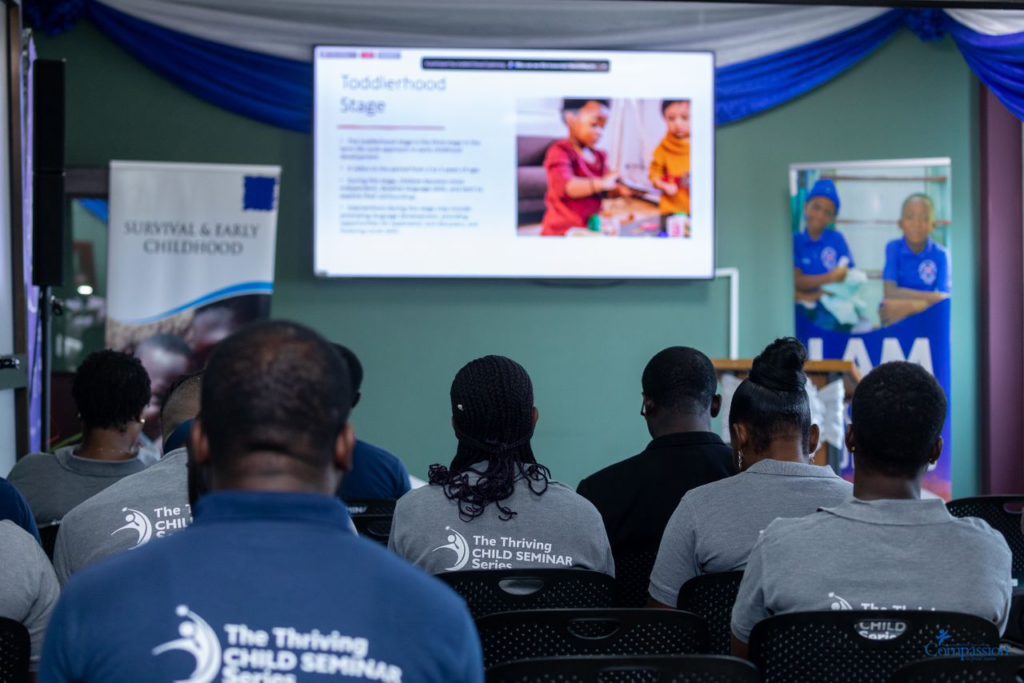Non-governmental organisation, Compassion International Ghana (CIGH), has called on the government to roll out child development policies.
The organisation made the clarion call at the second edition of the Thriving Child Seminar Series (THriCSS) under the theme; Child Development Milestones and Holism.
The National Director of CIGH, Kobina Yeboah Okyere, emphasised the need to recognize developmental milestones as the best foundation for children.
“The concept of holism underscores that each child is a unique individual with interconnected physical, emotional, social, and cognitive dimensions.
“As an organization, our mission is to holistically release children from poverty, extending our programming efforts to cover these four critical areas, along with caregivers and the broader community,” he stated.
Senior Programme Design Specialist at Compassion International, Tanzania, Dr. George Martin Malima, highlighted the key role of appropriate interventions at each stage of a child’s life.
Identifying the four milestones of child development; pre-natal stage, infancy, toddlerhood stage, and preschool stage, he explained each require specific interventions to ensure proper growth.

“Tailoring specific interventions at each stage is critical because a challenge at one stage can affect the next stage. As child development implementers, we should be able to provide the necessary needs,” he noted.
Dr. Malima also touched on the nurturing care framework for children, including good health, adequate nutrition, responsive care giving, opportunities for early learning, and security and safety.

For the part of Unit Head of Early Childhood Education at Ghana Education Service (GES), Isaac Atta-Baah, he urged participants to align their curriculum with the Early Childhood Education (ECE) Policy.
He emphasized the importance of appropriate curriculum that promotes quality learning experiences and enhances the holistic development of children.
He added the policy goal must focus on creating an enabling environment that supports planning and management systems for quality, effective, and efficient ECE delivery.

Mr. Atta-Baah outlined six action areas needed for early childhood education, including effective planning and management, curriculum development and implementation, competent teachers, family and community engagement, child-friendly safe space and environment, and monitoring, regulation, and quality assurance.
He further commended CIGH for the seminar which provided implementers and caregivers with an opportunity to update their knowledge and competencies in the field.
This quarterly initiative aims to foster continuous learning and development among staff and child advocates within and beyond the country.

The maiden edition focused on the policy framework surrounding children, encompassing legal aspects and practical applications while the latest seminar delved into the intricate journey of child development.
ALSO READ:

